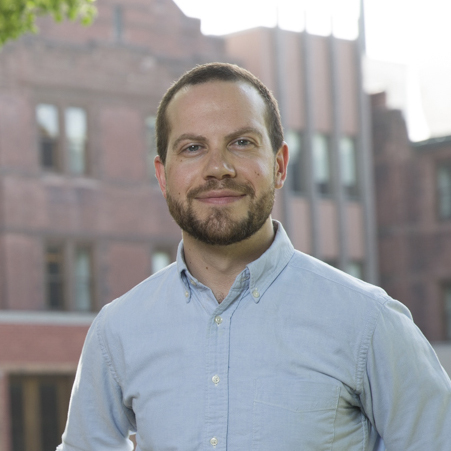Ian Garner

Ian Garner
PhD (2018), Slavic and East European Languages & Cultures
“My PhD is about the genesis and growth of the myth of Stalingrad in the Soviet Union and Russia.”
I grew up in London, England, before enrolling for undergraduate studies at the University of Bristol, where I completed my degree in Russian. I also studied classical guitar performance at the Rimsky-Korsakov State Conservatory in St. Petersburg, Russia, and taught in rural Finland before I came to Toronto in 2010 for graduate school.
My PhD in the Slavic and East European Languages and Cultures department is about the genesis and growth of the myth of Stalingrad in the Soviet Union and Russia. The work spans disciplines, drawing together approaches from literary and film studies, history, and political science. I’m particularly interested in relating the origins of Russians’ idea of Stalingrad to their national image in the present day, well after the end of the Soviet Union.
Recently I’ve been looking at how the Soviet media coverage of Stalingrad resembles that of 9/11, which makes you realize just how similarly our seemingly very different worlds react to and invoke national tragedies. Recent developments in Russia and Ukraine show the importance of understanding these trends, which help us to comprehend what to Western outsiders often seems like an inexplicable view of the world.
I wanted to study at a large university that would give me the opportunity to combine work across disciplines. U of T has well-equipped Slavic, History and related departments, so I knew I would be able to access the expertise and resources I needed in writing my PhD.
The depth of faculty and student knowledge at U of T is unbeatable. It has been a real privilege to work in close contact with some of the leading scholars in the field. My home department, Slavic, is full of enthusiastic and knowledgeable professors and students who were immeasurably helpful during my first few months in a new country and city. Five years later, I am still astounded by the efforts they go to in supporting their graduate students.
The library resources at U of T are fantastic. You never have to search too long for a book. If it isn’t at U of T, the amazing subject librarians will always help you find it. The staff at the Petro Jacyk Centre have been invaluable in tracking down some really obscure material that I otherwise never would have found—my thanks to them!
My favourite thing is being able to teach and guide undergraduate students as a course instructor in Russian and a Political Science Don at Trinity College. I’m always impressed by how motivated U of T undergrads are—they are also extremely talented—often introducing me to new ways of approaching topics that I never would have thought of on my own. They keep my feet on the ground, reminding me through their enthusiasm and dedication to keep working even when PhD studies are tough going.
Graduate school is a route to a career in academia or other environments that value scholarly pursuit, but it offers so much more. You will challenge yourself—and be challenged—in your ability to organize, develop, and pursue complex critical ideas. I have often pushed myself beyond the bounds of what I thought I was capable of as a result of studying here; there’s no way I would have done this if I’d got a cushy office job after finishing my undergraduate degree!
Ian was a Vanier SSHRC award winner and Jackman Junior Fellow.
